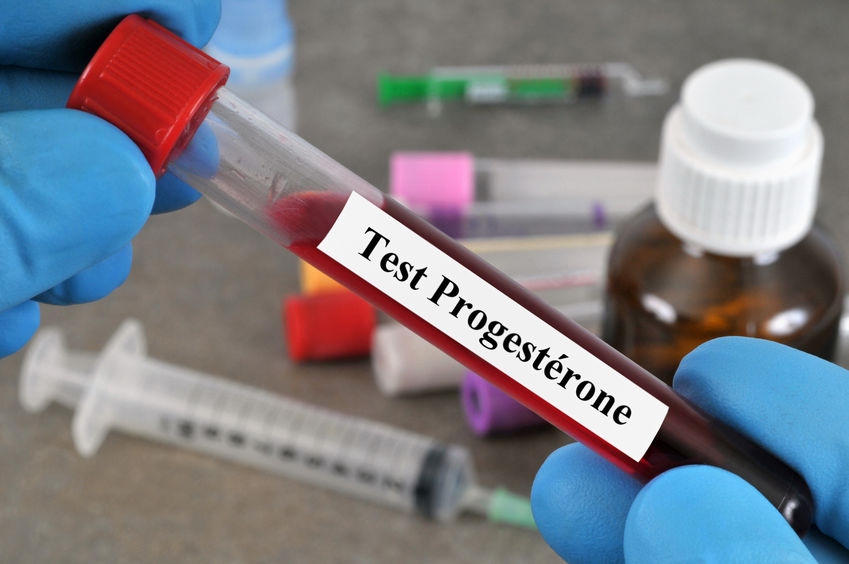
In order to understand how your hormone levels may be affecting your health and possible symptoms related to a hormone imbalance, it is important to understand the key hormones involved. In the last newsletter I discussed Estrogen and its role in our body. The spotlight of this article will be on Progesterone, a key hormone that also plays a very important role in fertility, menstruation and may lead to symptoms when out of balance in relation to other hormones.
What is progesterone?
Progesterone is a steroid hormone produced in the ovaries, adrenal glands and corpus luteum (a hormone secreting structure found in the ovary) after ovulation. It maintains the lining of the uterus for implantation of a fertilized egg, in pregnancy it stimulates the production of breast milk and it balances the effects of estrogen in many ways.
In the adrenal glands, progesterone is a precursor for aldosterone. This may be why some women retain water during the second ½ of their menstrual cycle. More on this later.
What are the symptoms of too much progesterone?
Some of the reasons a woman may have high progesterone include multiple pregnancies, a luteal ovarian cyst and certain medications. Symptoms may also result from a relative excess of progesterone when compared to lower levels of Estrogen.
Symptoms of excess progesterone relative to Estrogen may include:
-acne, anxiety, moodiness, bloating, breast tenderness, fatigue, vomiting, and swelling of the feet.
What are the symptoms of low progesterone?
Some of the reasons a woman may have low progesterone include PCOS, too much stress, high prolactin levels, thyroid dysfunction, nutritional deficiencies (vit A, E, C, B6, Mg and Zinc), perimenopause/menopause and oral contraceptives.
Symptoms of low progesterone relative to estrogen may include:
-spotting, anxiety, brain fog, fatigue, bloating, shorter menstrual cycles.
When is the best time to test for progesterone?
Progesterone can be tested via blood, saliva or urine. I generally recommend a blood test between days 19- 22 of a 28 day cycle (about 7 days before your expected period).
Foods to support Progesterone:
Foods that may support progesterone include foods high in fiber such as oats; foods high in zinc such as lean meats, pumpkin and nuts; foods high in B6 such as fish, turkey and sunflower seeds and foods high in magnesium such as leafy greens, spinach, nuts and seeds.
Bio-identical Hormone Replacement Therapy:
For many women in perimenopause or who have PCOS, bio-identical Progesterone replacement may be a beneficial option. Bio-identical HRT is compounded from yams. It can be taken via a capsule (best for insomnia), transdermal cream or vaginal application. Our Naturopathic Doctors are trained and experienced in the use of Bio-identical HRT.
You now have a better understanding of the role progesterone plays in our menstrual cycle. If you suffer from PMS, perimenopause or menopausal symptoms, consider consulting with one of our Naturopathic Physicians. Through a thorough assessment and lab testing, many hormonal symptoms may be alleviated using diet, stress management, herbal therapy, nutrients and bio-identical HRT. Enjoy the rest of the summer. Wishing you health and safety for the upcoming months.
Yours in health,
Dr Tasreen Alibhai, ND



